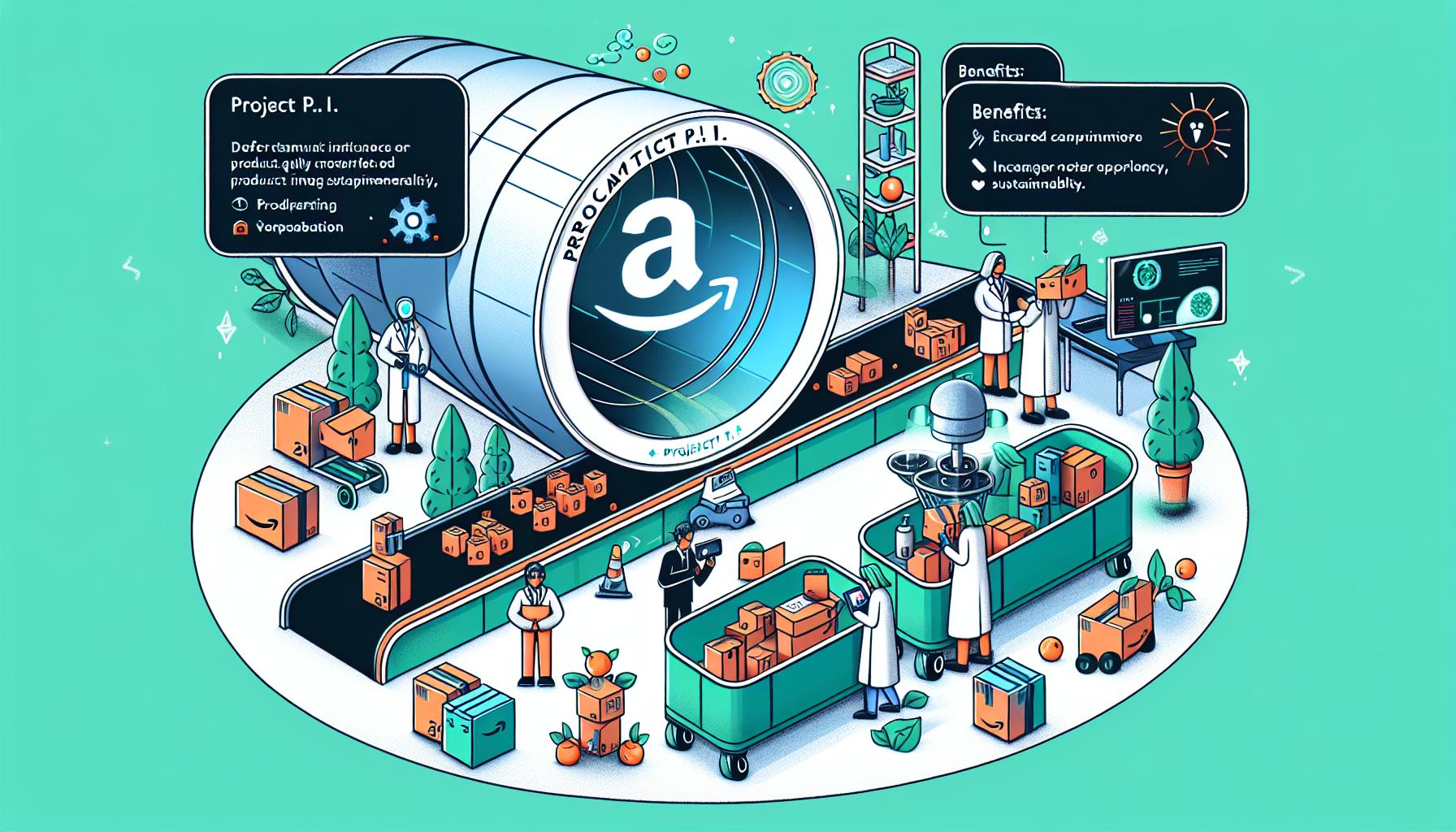Amazon's Project P.I.: Leveraging AI for Product Quality and Sustainability

Introduction
Amazon has always been at the forefront of innovation, especially when it comes to customer satisfaction and operational efficiency. One of its most groundbreaking initiatives in recent years is Project P.I., short for 'private investigator.' This advanced AI-based initiative aims to enhance product quality and sustainability across Amazon's fulfillment centers in North America. By leveraging computer vision and generative AI, Project P.I. inspects products for defects before they are dispatched to customers, thereby improving customer satisfaction and contributing to Amazon's sustainability goals.
How Project P.I. Detects Defects
Project P.I. utilizes a combination of generative A.I. and computer vision technology to identify product defects. As products pass through an imaging tunnel, high-resolution cameras capture multiple angles of each item. The generative A.I. then analyzes these images in real-time, looking for discrepancies such as damage, incorrect colors, or sizes. Advanced algorithms compare the captured images against a database of ideal product standards to isolate any problematic items. This multi-faceted approach ensures a higher accuracy in defect detection compared to traditional methods.
The Operational Process
Once a defect is identified, the item is flagged for further inspection. Amazon associates then intervene to decide the fate of the flagged items. These items could be resold at a discount, donated, or repurposed. The human intervention in this process ensures that there is a secondary quality check layer, which further reduces the chances of defective products reaching customers.
Enhancing Customer Experience and Sustainability
One of the most significant benefits of Project P.I. is the improvement in customer experience. By accurately identifying and removing defective products, Amazon reduces the likelihood of returns, ensuring customers receive items in pristine condition. This not only enhances customer satisfaction but also minimizes the resources used in handling returns. The sustainability aspect of Project P.I. cannot be overlooked. By reducing returns and wasted packaging, Amazon can significantly lower its carbon emissions, contributing to its broader environmental goals.
Preventing Defects Upstream
Once defects are detected, the data collected can be used for root cause analysis. By understanding the underlying issues causing the defects, Amazon can take preventive measures upstream in the supply chain. This may involve working more closely with suppliers to ensure product quality or making adjustments in the fulfillment process to avoid similar issues in the future.
Future Expansion and Impact
Project P.I. is currently deployed in several fulfillment centers, with plans for expansion throughout 2024. As the technology is rolled out more widely, it is expected to have a substantial impact on overall return rates and customer satisfaction metrics. By catching defects earlier in the process, Amazon can reduce the number of defective products that reach customers, thereby lowering return rates and boosting overall customer satisfaction.
Broader Impact on Selling Partners
In addition to benefiting Amazon's internal operations, Project P.I. also offers significant advantages for the company's selling partners, particularly small and medium-sized businesses. By making defect data more accessible, these sellers can quickly rectify issues and minimize future errors, improving their overall performance on the platform. This collaborative approach ensures that all stakeholders benefit from the enhanced quality control measures.
Conclusion
Project P.I. represents a significant step forward in Amazon's efforts to improve product quality and sustainability. By harnessing the power of advanced A.I. technologies, Amazon can ensure that customers receive high-quality products, reduce waste, and contribute to a more sustainable future. As the technology continues to be refined and expanded, it is poised to set new standards in the realm of e-commerce quality control.




